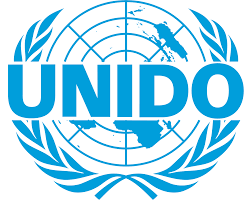South Africa - Plastic Reboot
South Africa
GEF ID:11196
Project Overview
South Africa releases relatively high volumes of plastic waste into the marine environment, and accounts for 35% of total plastic leakage to the ocean within the Eastern and Southern Africa region. Short-lived plastic products generate 1,546 000 tonnes of waste per year, with packaging as a major source of plastic leakage in South Africa. Plastic packaging in the Food and Beverage (F&B) sector has the highest input volumes (production and consumption), waste generation, and leakage rates compared to all other applications.
The objective of this project is to reduce volumes of plastic waste generated and leaked into the environment through the implementation of strategic circular interventions upstream and midstream in the plastic packaging value chain in the F&B sector in South Africa.
Project Components
Enabling the policy and regulatory environment to support the formulation and implementation of policy and regulation promoting the uptake of circular plastic packaging. The focus within this component will be on extended producer responsibility (EPR) as well as complementary policy and regulation;
Mobilizing finance (financial institutions and government agencies) to de-risk and scale investment in circular plastic packaging. Outputs are the development of a reporting framework for companies and funding vehicles to support increased financial flows to circular plastic packaging;
Promoting uptake of circular solutions in the F&B plastic packaging value chain. Outcome is the adoption and scaled implementation of circular practices for plastic packaging on the market. This would be achieved by developing implementation plans to eliminate problematic plastics, scaling of reuse models and inclusion of recycled content, reporting on usage of bioplastics, facilitating co-design workshops, and pitching events to improve design for circularity;
Knowledge management and communication to improve knowledge sharing that supports and embeds the circular economy approach. Outcome is harmonized definitions and metrics with associated measurement methodologies that result in improved transparency of data for coherent decision making. Outputs include the development of harmonized definitions, metrics and measurement methodologies, and educational materials for government and industry.
Global Environmental Benefits
The global environment benefits from implementation of the project would include an overall reduction of plastic residual waste generation resulting in GHG emission mitigation across the plastic life cycle and POPs release to air from reduced burning of plastic waste.
Other benefits include healthier communities, an increase in job creation, and an increase in skill levels relative to the baseline across genders. A gender transformative approach will be used within the project to address existing gender inequalities.











